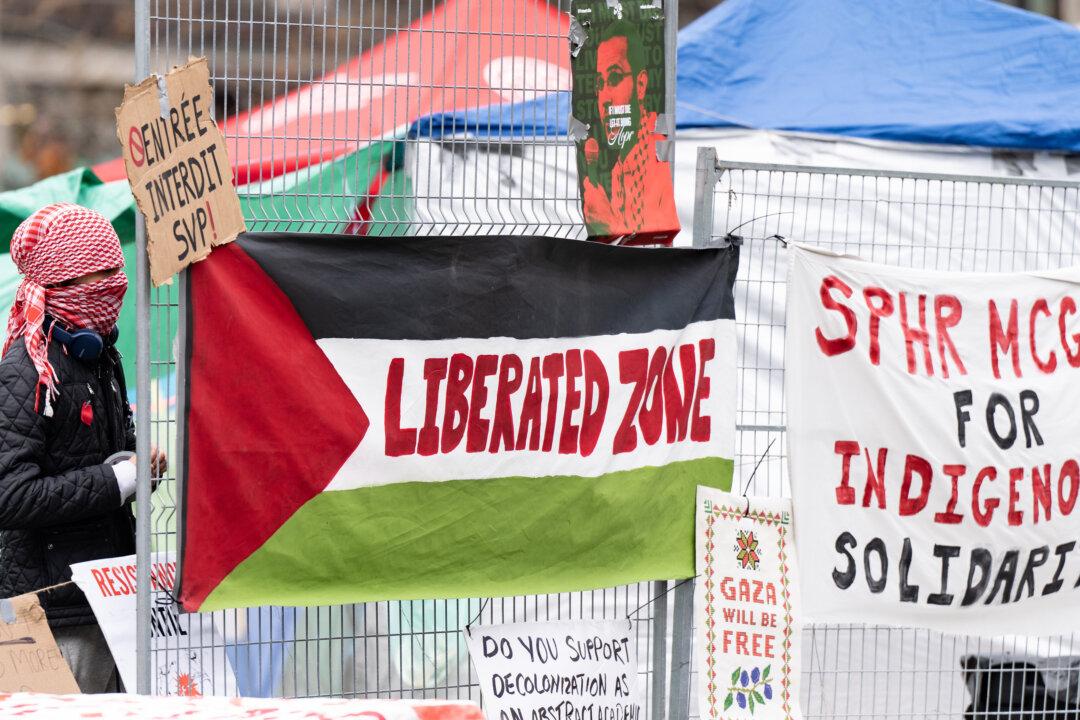Montreal police used tear gas to disband demonstrators and arrested 15 people on June 6 after masked protesters occupied the main administration building at McGill University.
The arrests came after demonstrators barricaded themselves in the James Administration Building on the third floor of McGill University’s downtown campus in what the protesters described as a “global call to action.”





